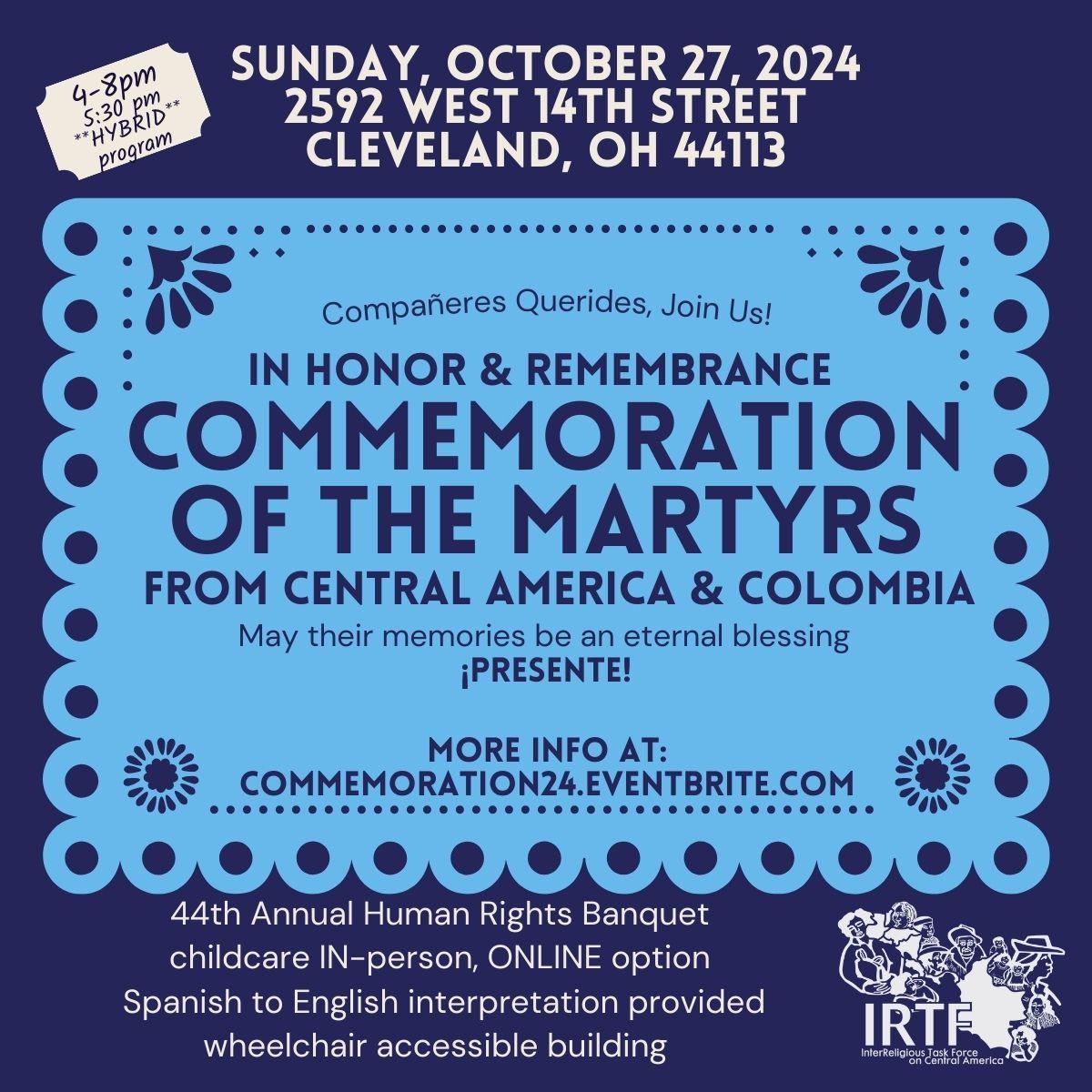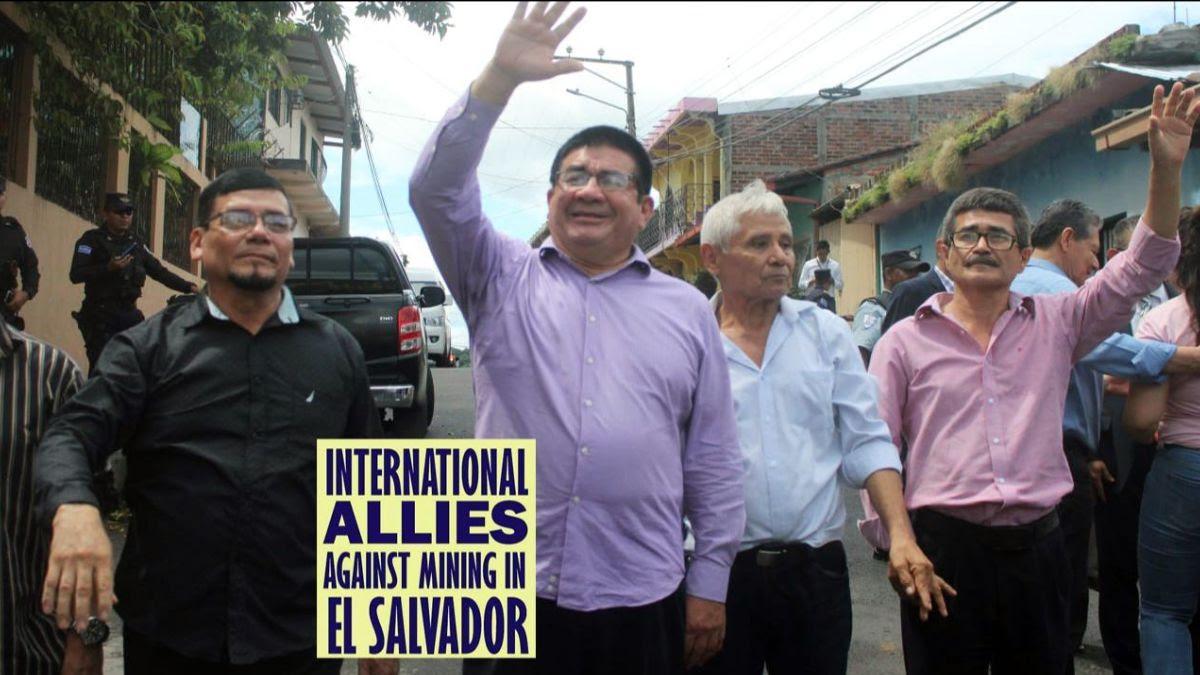- Home
- About Us
- Issues
- Countries
- Rapid Response Network
- Young Adults
- Get Involved
- Calendar
- Donate
- Blog
You are here
El Salvador: News & Updates
El Salvador is the smallest and most densely populated country in Central America. The US-backed civil war, which erupted after the assassination of Archbishop Oscar Romero in 1980, lasted 12 years (1980-92), killing 70,000 people and forcing 20% of the nation’s five million people to seek refuge in the US.
Learn more here.
News Article
December 12, 2024
Ronald Douglas Johnson served as the United States ambassador to El Salvador from 2019 to 2021. He was appointed by President Donald Trump.
Johnson quickly became a key ally of Bukele’s administration, making frequent appearances at press conferences, work meetings, and even private events. While Bukele ignored the criticism of international organizations who raised concerns about the human rights violations, caused also through the detention of tens of thousands El Salvadorans without evidence or trial, Johnson downplayed the controversy, asserting that the priority was reducing crime. The US ambassador also ignored the criticism of Bukeles authoritarian tendencies. He never took a position on the fact that Bukele used heavily armed military personnel to take over Congress.
Sixteen months into Johnson’s tenure, Joe Biden assumed the U.S. presidency, reinstated Jean Manes as ambassador in El Salvador, and reversed many of Bukele’s concessions. But with the reelection of Donald Trump Johnson will, if the Senate confirms, become the new ambassador to Mexico.
News Article
December 10, 2024
El Salvador was the first country in the world to ban the mining of metals in 2017, warning of the harmful effects of the chemicals used in mining, like cyanide and mercury.
President Bukele, who used to be a strong advocate for the mining ban, now writes on X: "God placed a gigantic treasure underneath our feet," and argues that the mining ban was "absurd."
"If we make responsible use of our natural resources, we can change the economy of El Salvador overnight," he added a few days later.
Some El Salvadorans see the resumption of mining as a possibility to create jobs. Others who are earning their money through extracting gold nuggets from disused mining tunnels by hand are fearing to lose their income to multinationals.
And environmental activists warn about further poisoning of local rivers, which are a source of drinking water for many people.
Event
December 10, 2024
This Thursday, December 12 at 3 pm ET CISPES will be hosting an important conversation about political persecution in El Salvador today, including political imprisonment, a repressive tactic not seen in El Salvador since the days of the civil war.
Bukele has made persecution of his political opponents, the grassroots opposition, and the independent press a hallmark of his regime. Just this week, police raided the homes of several journalists and artists, taking computers, hard drives, USB drives and other personal property - without even giving them a reason why.
The raids confirm that Bukele’s widespread violation of due process and human rights is not limited to a supposed war on corruption or on gangs but is used to attack critics.
We are fortunate to hear from two leaders in the struggle to free political prisoners: Lourdes Palacios, coordinator of the Committee of Relatives of Political Prisoners and the Politically Persecuted (COFAPPES), and Ivania Cruz, attorney with the Human and Community Rights Defense Unit (UNIDEHC).
They will share information about several high-profile cases of political prisoners - including recent victories and ongoing challenges - and the important role that international solidarity campaigns have and will continue to play in the struggle for their freedom.
The webinar will be in Spanish (available via streaming on YouTube and Facebook). For interpretation to English and/or to join the Q&A, please register to join on Zoom here.
Given that Trump has promised to persecute his political enemies and threats are on the rise against domestic dissent, we hope this conversation will offer timely, useful insights on effective organizing and solidarity. In the face of threats of mass deportations, it’s also critical that we understand the cruel realities of policing and prisons in El Salvador for asylum seekers and other immigrants who may be targeted.
News Article
December 7, 2024
NACLA editorial committee members Jorge Cuéllar and Hilary Goodfriend recently wrapped a marathon, three-episode podcast series on Central America with The Dig, a podcast hosted by Daniel Denvir through Jacobin Radio. This sweeping conversation on the region’s history, political economy, and present conjuncture is intended to serve as an accessible yet comprehensive tool for scholars and activists, beginning with Central American state formation and the imperialist interventions of the late 19th century and concluding with reflections on the far-right demonization of migration in the United States today.
News Article
December 2, 2024
In 2013 a young woman, Beatriz had been denied an abortion, even though she was seriously ill and the foetus would not have survived outside the uterus. Beatriz died after being involved in a traffic accident in 2017, but her case is before judges at the inter-American court of human rights and could open the way for El Salvador to decriminalise abortion, which could also set an important precedent in across the Caribbean, South and Central America, abortion is not permitted in seven countries.
In El Salvador, abortion can be punished by up to eight years in prison, and women can even be charged with aggravated homicide, which carries a sentence of up to 50 years in prison. Women have been jailed for miscarriages. And women who advocate for safe access to abortion facing hate and threats online as well as offline.
The Global Center for Human Rights, a US-based anti-abortion organisation linked to conservative evangelical groups and the Heritage Foundation opposes what it calls “ideological colonisation [of] countries rooted in Christian values”. They create websites, petitions and videos where to spread fake news like that Beatriz case was made up by the inter-American court to legalize abortion but also to spread hate against abortion activists by for example calling them “enemy of the state”, a “colleague of terrorists” and a “feminazi”.
This has serious consequences. An activist telles the Guardian: “I have received a lot of threats and hate speech on social networks, especially on X,” she says. “A post can lead to a wave of comments where I’m called a murderer; people accuse me of promoting a crime and there are requests that the attorney general investigate me.” Anti-abortion groups often gather outside her office to pray, which she sees as an act of intimidation. Her organisation’s website was the target of 13,000 cyber-attacks during the hearing of the landmark case of Manuela v El Salvador at the IACHR in 2021.
News Article
December 1, 2024
In 2017, El Salvador banned all metals mining above ground and below. A broad coalition of sectors, including the Catholic church, supported the prohibition in order to protect the small country’s water resources from contamination.
President Bukele who supported a mining ban during his first campaign for the presidency in 2019 now wants to lift the country’s ban on gold mining and proposes “modern and sustainable” mining that would care for the environment.
“It’s not true that there’s green mining, it’s paid for with lives, kidney, respiratory problems and leukemia that aren’t immediate,” said Amalia López with the Alliance Against the Privatization of Water. The Archbishop José Luis Escobar Alas is also against the President's plans and asked President Nayib Bukele not to reverse the ban.
News Article
November 24, 2024
Hundreds of Salvadorans protested to demand the release of “innocent” individuals imprisoned during President Nayib Bukele’s crackdown on gangs.
“Freedom now,” read a banner carried by members of the Victims of the Regime Movement (Movir). Approximately 83,000 alleged gang members have been imprisoned under the state of emergency, which allows for arrests without warrants. However, according to humanitarian organizations such as Socorro Jurídico Humanitario, Cristosal, and Movir, around 30,000 of those detained are “innocent.”
The demonstration, which took place in the historic center of the city, was joined by doctors and teachers calling for improved public services
News Article
November 19, 2024
During the country’s civil war, in November 1989, a military commando stormed the Jesuit Central American University (Uca) campus, killing its rector, the Spanish priest Ignacio Ellacuría, five of his colleagues – Ignacio Martín Baró, Segundo Montes, Juan Ramón Moreno, Joaquín López y López, Amando López, along with Elba and Celina Ramos.
Now the former president Alfredo Cristiani, a former congressman and nine retired military officials are charged with murder and acts of terrorism over one of the most notorious crimes committed during the 12-year war, which left 75,000 civilians dead and only formally ended in 1992.
News Article
November 7, 2024
IRTF is grateful to the 200 supporters who gathered on October 27 at Pilgrim Church in Cleveland’s Tremont neighborhood for IRTF’s annual Commemoration of the Martyrs. In addition to marking the 44th anniversary of the martyrdom of Cleveland’s missioners in El Salvador (Jean Donovan and Sister Dorothy Kazel, alongside Maryknoll Sisters Ita Ford and Maura Clarke), we commemorated 36 human rights defenders killed in Central America and Colombia this past year because they dared to speak truth to power.
Our keynote speaker, Lorena Araujo of the largest campesino organization in El Salvador (CRIPDES), held the crowd’s attention with horrific stories of mass arrests, detentions and deaths currently happening under their government’s State of Exception, now in its third year. With more 88,000 imprisoned (and more than 300 deaths in prison), El Salvador now has the highest incarceration rate in the world—surpassing the astronomical rate of incarceration in the United States.
As the people of El Salvador face the greatest challenge to their democracy since the end of the civil war in 1992, they invite us to renew and deepen our solidarity.
If you would still like to make a donation:
https://bit.ly/3YDmETj via Zeffy platform
irtfcleveland.org/donate via Network for Good
News Article
October 18, 2024
Since early 2023, IRTF has been involved in an international solidarity campaign to drop bogus criminal charges against five environmentalists in El Salvador. After 20 months of petition gathering, calls to the US State Departement and US Embassy, a sign-on letter from the US Congress and other advocacy efforts, we are happy to report that the Santa Marta 5 have been freed!
The five prominent community leaders (Miguel Ángel Gámez, Alejandro Laínez García, Pedro Antonio Rivas Laínez, Antonio Pacheco, and Saúl Agustín Rivas Ortega) were all instrumental in the successful campaign to save El Salvador’s rivers from the threat of gold mining. With a unanimous vote in El Salvador’s National Assembly in March 2017, El Salvador became the first nation on earth to ban all metallic mining.
Since they were arrested in January 2023 on politically-motivated charges, IRTF has participated in an international campaign spanning 31 countries demanding that the bogus charges be dropped and denouncing the political motivations behind their detention given the lack of evidence presented by the Salvadoran Attorney General’s office.



